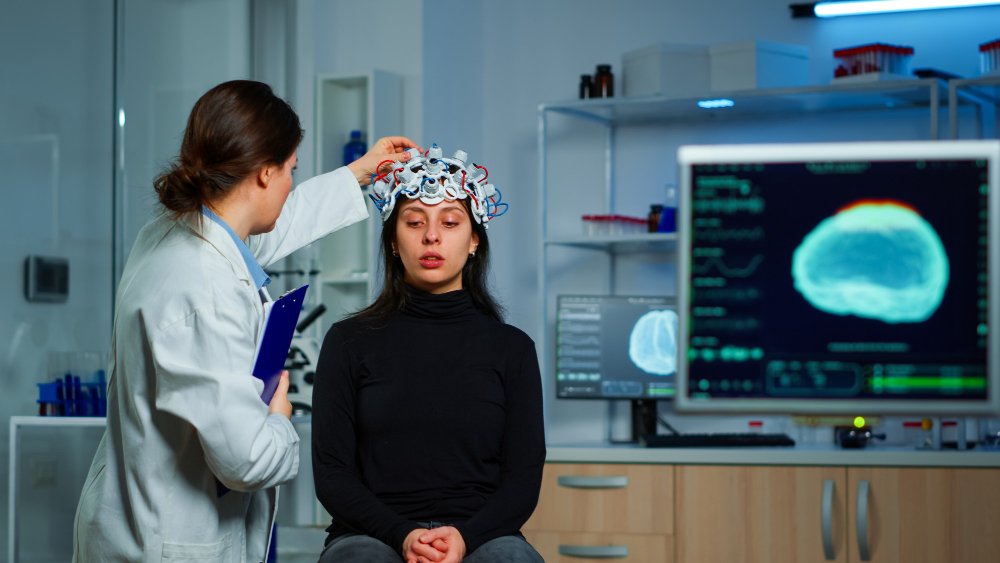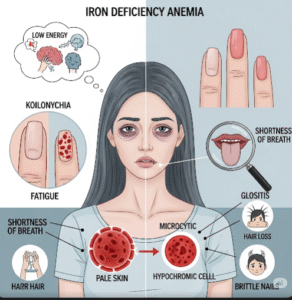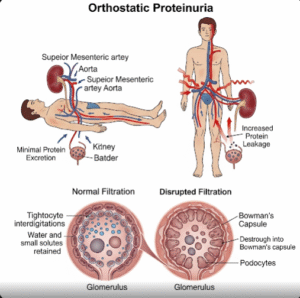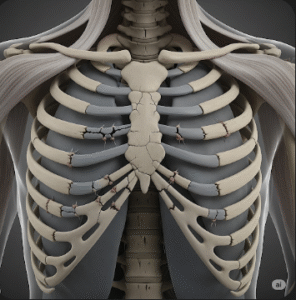Overview
Wernicke-Korsakoff Syndrome (WKS) is a serious brain disorder caused by thiamine (vitamin B1) deficiency, most commonly seen in individuals with chronic alcohol abuse. It is a combination of two related conditions: Wernicke’s encephalopathy, an acute neurological emergency, and Korsakoff’s psychosis, a chronic memory disorder. Prompt treatment with thiamine can reverse early symptoms, but untreated WKS can lead to permanent brain damage and disability.
What is Wernicke-Korsakoff Syndrome?
Wernicke-Korsakoff Syndrome is a neurological disorder typically caused by a severe deficiency in vitamin B1 (thiamine), which the brain requires for energy metabolism. The syndrome progresses in two phases:
- Wernicke’s encephalopathy is the acute phase marked by confusion, lack of muscle coordination, and abnormal eye movements.
- Korsakoff’s psychosis is the chronic phase that develops if Wernicke’s encephalopathy is not treated and is characterized by severe memory loss, confabulation (making up stories), and difficulty learning new information.
The condition is most often associated with long-term alcohol use, but it may also result from malnutrition, eating disorders, or chronic illness.
Symptoms
Symptoms can appear suddenly or gradually and vary depending on the stage of the syndrome.
Wernicke’s encephalopathy (acute phase):
- Confusion or altered mental state
- Ataxia (poor balance or unsteady gait)
- Nystagmus and ophthalmoplegia (rapid or abnormal eye movements)
- Lethargy or apathy
- Hypothermia and low blood pressure (in some cases)
Korsakoff’s psychosis (chronic phase):
- Severe short-term memory loss
- Confabulation (fabricating events to fill memory gaps)
- Difficulty forming new memories
- Disorientation
- Lack of insight or apathy
Causes
Wernicke-Korsakoff Syndrome is caused by a severe deficiency of thiamine (vitamin B1), which leads to brain damage. Causes of thiamine deficiency include:
- Chronic alcohol abuse – interferes with thiamine absorption and storage
- Prolonged malnutrition or starvation
- Eating disorders such as anorexia nervosa
- Chronic vomiting (e.g., in hyperemesis gravidarum)
- Bariatric or gastrointestinal surgery
- Cancer, AIDS, or chronic infections that impair nutrient absorption
Risk Factors
Risk factors that increase the likelihood of Wernicke-Korsakoff Syndrome include:
- Long-term, heavy alcohol consumption
- Poor diet or malnutrition
- Recurrent vomiting (from illness, pregnancy, or bulimia)
- Gastrointestinal disorders or surgeries that reduce absorption
- Dialysis or chronic illnesses like cancer or AIDS
- Genetic predisposition in rare cases
Complications
If left untreated, WKS can result in serious and often permanent complications, such as:
- Irreversible memory loss
- Dementia-like symptoms
- Inability to live independently
- Coma or death (especially during the Wernicke phase)
- Recurrent hospitalizations
- Neurological disability requiring long-term care
Prevention
Preventing Wernicke-Korsakoff Syndrome focuses on maintaining proper thiamine levels and addressing alcohol use:
- Thiamine supplementation for at-risk individuals (e.g., alcoholics, those with malabsorption)
- Balanced diet rich in thiamine (e.g., whole grains, legumes, nuts, pork)
- Limiting alcohol intake or seeking treatment for alcohol dependency
- Early medical treatment for chronic vomiting or malnutrition
- Routine screening for thiamine deficiency in high-risk patients
Treatment Options in Korea
South Korea provides excellent neurological and addiction treatment services to manage Wernicke-Korsakoff Syndrome. Key options include:
- Intravenous thiamine therapy – immediate administration of high-dose thiamine to reverse acute symptoms
- Oral thiamine supplementation for long-term support
- Nutritional rehabilitation with support from dietitians
- Treatment of alcohol dependence – including inpatient and outpatient rehabilitation programs
- Neuropsychological evaluations and cognitive therapy for memory issues
- Supportive care including physiotherapy and occupational therapy for functional impairments
- Inpatient detox and long-term care facilities in hospitals like Seoul National University Hospital, Asan Medical Center, and addiction centers
South Korea’s integrated approach, combining neurology, psychiatry, and rehabilitation, provides comprehensive care for individuals with WKS.













